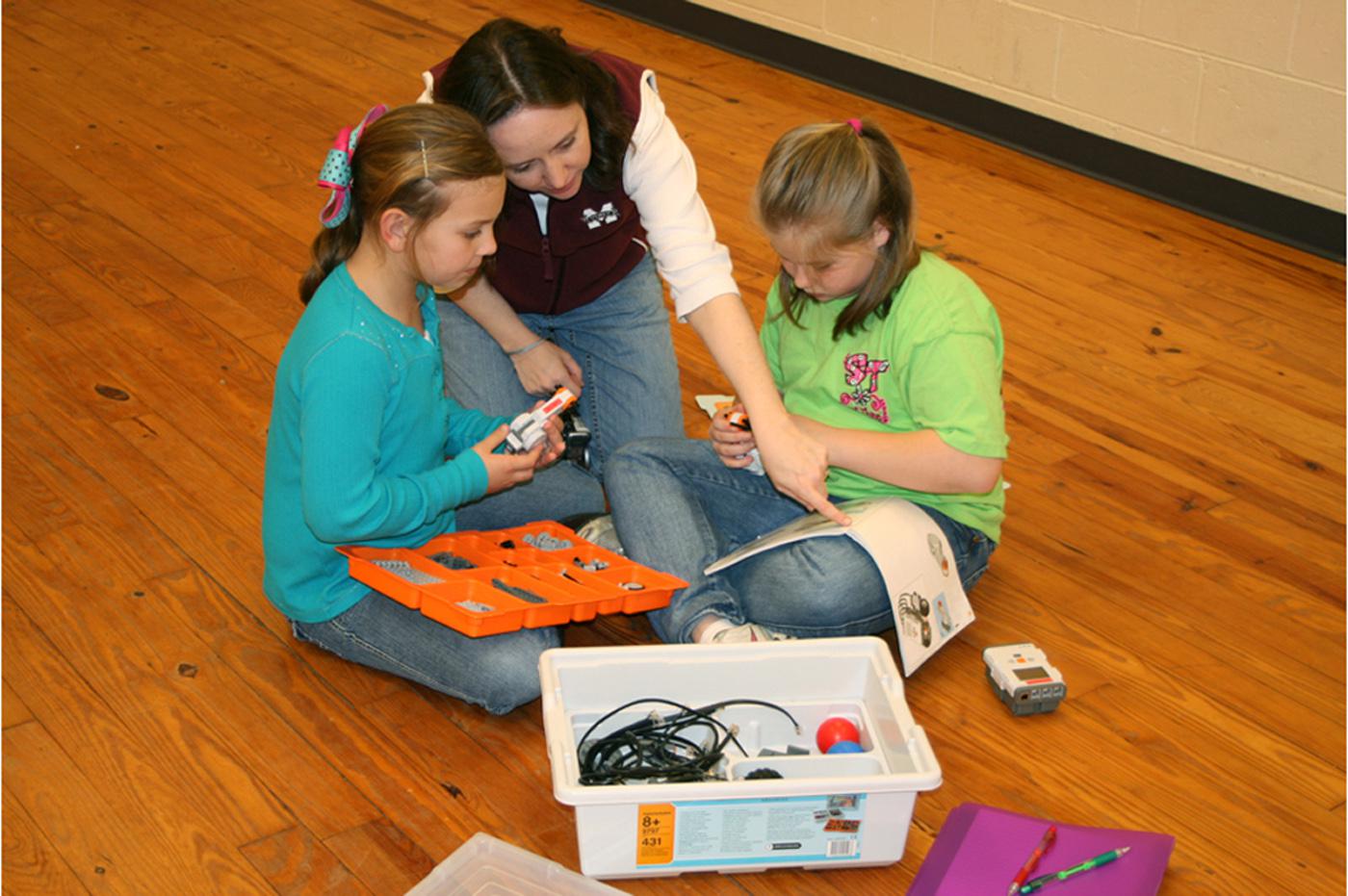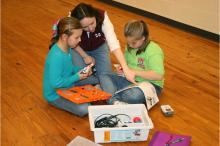Information Possibly Outdated
The information presented on this page was originally released on April 1, 2010. It may not be outdated, but please search our site for more current information. If you plan to quote or reference this information in a publication, please check with the Extension specialist or author before proceeding.
Robots help teach math, science and engineering
MISSISSIPPI STATE – Nearly 200 Mississippi 4-H youth are learning science, technology and engineering skills as they work with robots and meet monthly via videoconferencing to learn new skills and take on new challenges.
Mariah Smith, an instructor with the Mississippi State University Extension Service, is coordinating the program for Mississippi 4-H. She said the youth learn basic science, technology and engineering concepts behind robots and make simple robotic elements out of non-traditional parts.
“We have 29 counties with robotics clubs, and once a month, we hold a videoconference to deliver content for them to work on,” Smith said. “Each month has a specific focus, and we develop the lesson plans for that month. The topic relates to an aspect of the robot that can help youth see the concept in action. We take the 4-H motto of ‘learning by doing’ to a new level.”
One meeting focused on the use of wheels and axles and studied torque. Their supply list for the activity included drinking straws, a pack of gum, Life Savers and lollipops.
“We made a candy car and learned how to convert degrees and rotations to inches,” Smith said. “Our wheels were the Life Savers, and we taught them that as the wheel makes a complete turn, they could measure the rotation of the wheel and determine that one rotation was equal to the number of inches the car travelled. Converting rotations to inches or degrees is critical when programming a robot.”
Other activities the clubs have done include building an electric circuit board and making it work in a game, and building a small motor out of a battery, copper wire, a magnet and paper clips.
Wes Pumphrey, a student worker in MSU’s computer services department, is majoring in computer engineering and is involved in the 4-H robotics program. He breaks complex concepts into small, simple segments for the youth to grasp.
“I find robots fascinating and am looking for ways to convey basic engineering subjects to the younger youth of Mississippi,” Pumphrey said. “I challenge the kids of 4-H by creating small activities or experiments that, when put together and into practice, will educate them in these fields.”
The robotics clubs build on skills the youth will need in the robotics competitions at 4-H Club Congress or Project Achievement Days. Clubs meet once a month for a lecture and demonstration via the Extension Service videoconferencing network available in each county.
“This is quite possibly the best way to communicate to all 82 counties in the state simultaneously,” Pumphrey said. “I am able to perform the activities as live action, and then I can answer any questions as the kids experiment for themselves.”
Smith said clubs and individuals earn points each month by completing the task presented in the monthly meeting and through an online blog. 4-H youth wishing to participate in the robotics competition will receive a robotics kit on loan from the MSU Extension Service Computer Applications and Services Department.
“We’re teaching them the concepts behind robotics through fun and easily accessible activities. Once they understand the concepts, they can transfer that knowledge to their robots,” Smith said. “They are getting hands-on experience so that when they get their robots, they will be ready to work with them.”
Youth may also earn extra points by completing the HotBot challenges, which are activities that reinforce what they learned in the club meeting. The individual and group HotBot winners will receive an all-expense-paid robotics day camp in their county this summer, Smith said.
“The HotBot challenges are geared toward bringing different disciplines together,” Smith said. “We ask participants to do things like build a simple motor, build a bot out of recycled materials or come up with their own song based on a robotics theme.”
Those completing the HotBot challenges are required to document their activities, taking pictures and videotaping their work so Smith and her staff can evaluate performance and award HotBot points.
Boys and girls ages 8-18 are members of the 4-H robotics clubs, and Smith said a big emphasis of the clubs is to interest young people in science, technology and engineering. Contact the local county Extension office for more information on the 4-H robotics program.





